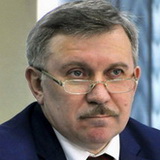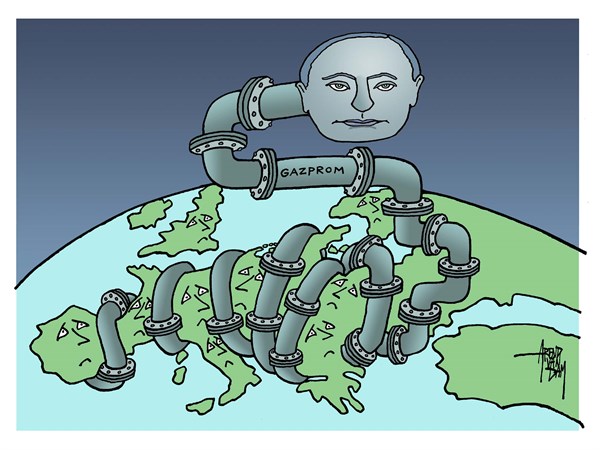Although it is disguised by lobbyists as an act of caring for Ukraine, its real goal is to help complete the completion of Nord Stream 2. If the maintenance of the status quo of gas transportation through Ukraine to the EU and security guarantees in this regard was indeed on the agenda as claimed, then a document like "On the introduction of a moratorium on the completion of Nord Stream 2 and guarantees of energy security in the Central and Eastern countries Of Europe" would be signed by Joe Biden and Angela Merkel.
The German Greens proposed a moratorium a few months ago, but without the appropriate lobbying potential not only in Washington but even in the Bundestag, they failed to implement the idea. Instead, this drastically intensified the Kremlin's German proxies, including Angela Merkel.
Understanding why and how this happened is essential for developing an appropriate algorithm for continuing to counter Nord Stream-2 as another mechanism of the Kremlin in its hybrid aggression in Europe. Here are seven reasons why the EU and USA lost to the Kremlin's lobbyists.
1. The United States suffered an invisible but large-scale defeat in cyberspace in December 2020 (the SolarWinds hack).
Over time, it became clear that this had become a cyber Pearl Harbor for the United States. It was carried out by the Putin regime, with the Kremlin's secretive cyber forces carrying out the main offensive in May 2021 -- a strike on the Colonial Pipeline.
In this way, Russia has created a new vulnerability for the United States and its current administration. The United States, of course, is a powerful country, but not an omnipotent one. They do not know (yet) how to neutralize an invisible enemy. So they play for time, studying the theater of operations (in cyberspace), and are forced to make concessions to the cyber warriors so it would not get worse. Russia uses this by acting through German proxies.
2. The German federal government basically acts as a proxy for the Kremlin, taking the initiative to neutralize US sanctions against the Russian project.
It is paradoxical that Berlin keeps repeating the mantra that Nord Stream 2 is a private project of a group of companies and that the federal government has nothing to do with it, yet it is officials who are empowered to go to Washington to negotiate and formulate an official document.
The Kremlin applauds the skills of German proxies. The high art of hybrid special operations is that the enemy does everything you need with their own hands.
3. Added to the US cyber vulnerability is the existing hard vulnerability of some American companies that were once trapped in Russia.
This refers to the second-largest company in the United States, Chevron, 18% of whose oil production arrives at the world market from a Kazakh field through the Tengiz-Novorossiysk pipeline, which is operated by Russia's state-owned Transneft. Probably, the Russians blackmailed Chevron into covertly acting in favor of the Kremlin through lobbying structures.
And what the Kremlin needs is obvious. It is noteworthy that the official lobbyist of both Nord Stream 2 AG and Chevron in Washington is the BGR Group, a company well known in Ukraine.
It is no coincidence that Chevron was one of the few American companies in the United States to oppose sanctions against Russia. This company suffered a crushing defeat in the early 2000s from Gazprom's anti-shale propaganda in Europe (with Bulgaria being the most striking example) and curtailed its projects in favor of Russia.
4. The helplessness of European institutions in counteracting Russia's energy expansion in Europe was already apparent five years ago.
They proved unable to stop Nord Stream 2 at an early stage, despite the project contradicting the declared principles of the EU's Energy Union, which was established in 2015.
Does anyone remember there is an Energy Union in the EU? There is also an Energy Community created by the EU, of which Ukraine has been a member since 2011.
Despite the fact that both the European Parliament (strongly) rejected the Nord Stream 2 project and the European Commission (sluggishly) opposed it, nevertheless, due to German dominance in the EU institutions, a regime of passive resistance was applied to the pipeline, which generally satisfied the Russians.
The only success of the European institutions is the extension of the EU Gas Directive to Gazprom's offshore gas pipelines, but this is largely due to Poland and Romania, who did not allow the Russians and their henchmen to live in peace in Brussels.
5. Ukraine's (dis)organized resistance to Russian bypass projects undoubtedly played its role in the current situation.
On the one hand, Ukraine was very successful in opposing Nord Stream 2, because no other similar project of Gazprom -- neither the "Blue Stream," nor "South Stream," nor "Nord Stream," nor "Turkish Stream" -- received such international resonance as Nord Stream 2. This is primarily due to the corporate efforts of Ukraine's state Naftogaz over the past six years, in fact, since the appearance of this Putin project in public.
But on the other hand, both President Poroshenko's government and the current one under Zelenskyy did not form a state vertical of energy security, did not create a systemic policy not only of direct opposition to Kremlin projects, but also coordinated interaction with Ukraine's partners at the state level -- USA, Poland, the Baltic states -- to neutralize the threats generated by Russia in the energy sector.
It's possible to say that the corporate diplomacy of Naftogaz has carried out a state function and with considerable success at that: US sanctions against Nord Stream 2, which delayed its completion and forced Gazprom to enter into a new agreement with Naftogaz in 2019. But that was not enough to stop the project forever.
This myopia at the state level is apparent from the unprofessional refusal of certain officials of Ukraine's anti-monopoly committee to initiate an antitrust investigation, and the National Security and Defense Council of Ukraine to sanction the operating company of Nord Stream 2 AG.
6. The actions of Russia and Gazprom in the post-US sanctions phase at the end of 2019 continued, but became less noticeable.
Understandably, Schroeder-Warnig's "German squad," operating in the deep rear of Europe, quietly continued to run "Putin's affairs," recovering from a sanctions strike by the US Congress and inspired by post-election turmoil in Washington.
Russia does not need to be overly active now. Germany (its ally) and the United States (its adversary) follow the algorithm Russia needs to win the Nord Stream 2 case.
The Kremlin's confidence in victory has grown so much that they have decided to openly blackmail Europe with gas, minimizing supplies to the EU in order to maximize prices and revenues, and push Europeans into stopping resisting Nord Stream 2.
7. The Chinese factor. It is not directly manifested here, but it has an indirect effect, because Washington is dominated by a misconception about the possibility of opposing China through a global alliance with Germany and Russia.
However, in reality, another informal alliance has been formed: China + (Russia + Germany), aimed at neutralizing the United States and the European Union as global centers of power. Russia's pipeline projects in the West (the streams in the Baltic and Black Seas) and the East (Siberian forces) aim to create "pipeline staples" for the alliance.
[hr]
“A second Budapest memorandum”: experts on the US-Germany Nord Stream 2 deal
Of course, this list of reasons that led to the current situation is incomplete.
However, these are the main factors of influence that must be taken into account when determining the further recipe for neutralizing the Russian gas octopus in Europe.
It is worth remembering: the case does not look as hopeless as it may seem at first glance.
At least because at the time when Merkel was on her way to Washington, the course of the history of Putin's flows was changed by the EU Court.
Consequently, the struggle continues. And there is much Ukraine can do in the situation.
Related:
- How Ukraine can still defeat Nord Stream 2
- Two keys to defeating Nord Stream 2 lie in Poland
- “A second Budapest memorandum”: experts on the US-Germany Nord Stream 2 deal
- What the US-German deal on Nord Stream 2 promises Ukraine
- US-Germany Nord Stream 2 agreement — a victory for Russia
- Strategic corruption: the new hybrid weapon against the West
- After Nord Stream-2: how Ukraine can protect its gas transit
- Mitigating the Nord Stream 2 impact on Ukraine
- Biden may lose ability to play around with Nord Stream sanctions: interview with Lana Zerkal
- Time to stop Nord Stream 2 now: open letter by Ukrainian politicians, leaders






